Does hanging pennies in a bag of water keep flies and pests away? Our entomologists say no, and suggest 3 methods that really do work
Bizarre or brilliant? Pest control pros explore whether this pest control hack works to keep flies at bay and deterrents that really work


If you have ever been down to the southern states of America, you may have noticed hanging bags full of water and shiny pennies, and almost definitely wondered why?
As it turns out, this trick is supposedly a strange solution to keeping pests away from porches and yards, by reflecting sunlight, dazing and deterring bugs and keeping flies away outside.
But, does this unusual pest control hack actually work? We spoke to our entomologists to find out, before you go hanging the contents of your wallet from your rafters.
Does hanging pennies in a bag of water really keep pests away?
While you may know of a few surprising uses for Ziploc bags around your home, you would be forgiven for knowing nothing about this hack.
As Rocky Beninato, founder and licensed exterminator at Quality Affordable Pest Control explains, 'The trick involves tossing a few pennies (or crumbled pieces of aluminium foil) in a Ziploc bag filled with water and suspending the bag on your porch, or wherever you're looking to keep flies away from.'
While it is thought to have originated in the southern states as a natural way to help keep flies away from stewing iced tea in the summer, unfortunately, it isn't deemed effective by entomologists.
In fact, if you have already tried other methods of keeping flies out of the house, such as citronella candles or screening a porch to physically keep flying bugs at bay, experts wouldn’t recommend turning to this old-wives tale as a backup – it could even be classed as a pest control mistake.

Nicole Carpenter, president at Black Pest Prevention, warns, 'I don't recommend relying on this method of keeping insects at bay. This method might work by refracting light through the water and bouncing off the shiny pennies, creating visual patterns that might confuse some insects, however, while the refracted light can indeed distract insects, this method can hardly significantly reduce the number of insects around you.
'This is because not all insects are affected by light patterns, and many will quickly adapt or ignore the reflections. There are other environmentally friendly methods, whose effectiveness has been proven.’
This is an opinion that Brett Bennett, director of operations at PURCOR Pest Solutions agrees with. He says, 'This is one of those pest control hacks that people will swear by, but there's not any really conclusive evidence that it works outside of anecdotes. When I've used it in the past, it seems to work here and there, but I personally find the flash of light off the pennies and water to be pretty distracting and inconvenient, especially when I'm out doing yard work or gardening.’
However, if you do want to give it a go, pest control expert Allan Bossel, operations expert at Bed Bug Exterminator, urges that the lack of scientific-basis shouldn't necessarily put you off – after all it's a chemical-free, harmless solution.
He says, 'The effectiveness of hanging pennies in a bag of water as a pest control method has not been corroborated scientifically, but there is no shortage of anecdotal evidence supporting it. Many people swear by this method, but equally as many aren’t convinced.
'Based on how varied people’s experiences have been, I think it depends a lot on how bad the pest problem is. If it’s just to control a few flies and mosquitoes, the method might make sense. However, even if the optical illusion explanation holds true, it will only be effective up to a certain extent.'
Therefore, in the case of a full-blown invasion (and remember, even clean homes get pests) even the most effective home-remedies won't be able to solve the problem, let alone harmless remedies such as this one. In that case, if you spot any signs it's time to call pest control, act quickly to prevent the problem worsening.
Bossel adds, 'Nevertheless, I think there is still something to be said about methods that come from folk wisdom. Just because it hasn’t been studied scientifically that much doesn’t automatically mean it’s not effective.
'Science may yet surprise us with some confirmation as soon as someone takes an interest and puts the method under rigorous study.' And, all you need is a Ziploc bag, such as the Ziploc Sandwich and Snack Bags available at Amazon, and some coins.
Other natural methods to keep flies away
Luckily, there are several other, more effective natural methods for dissuading flies.
1. Use scent
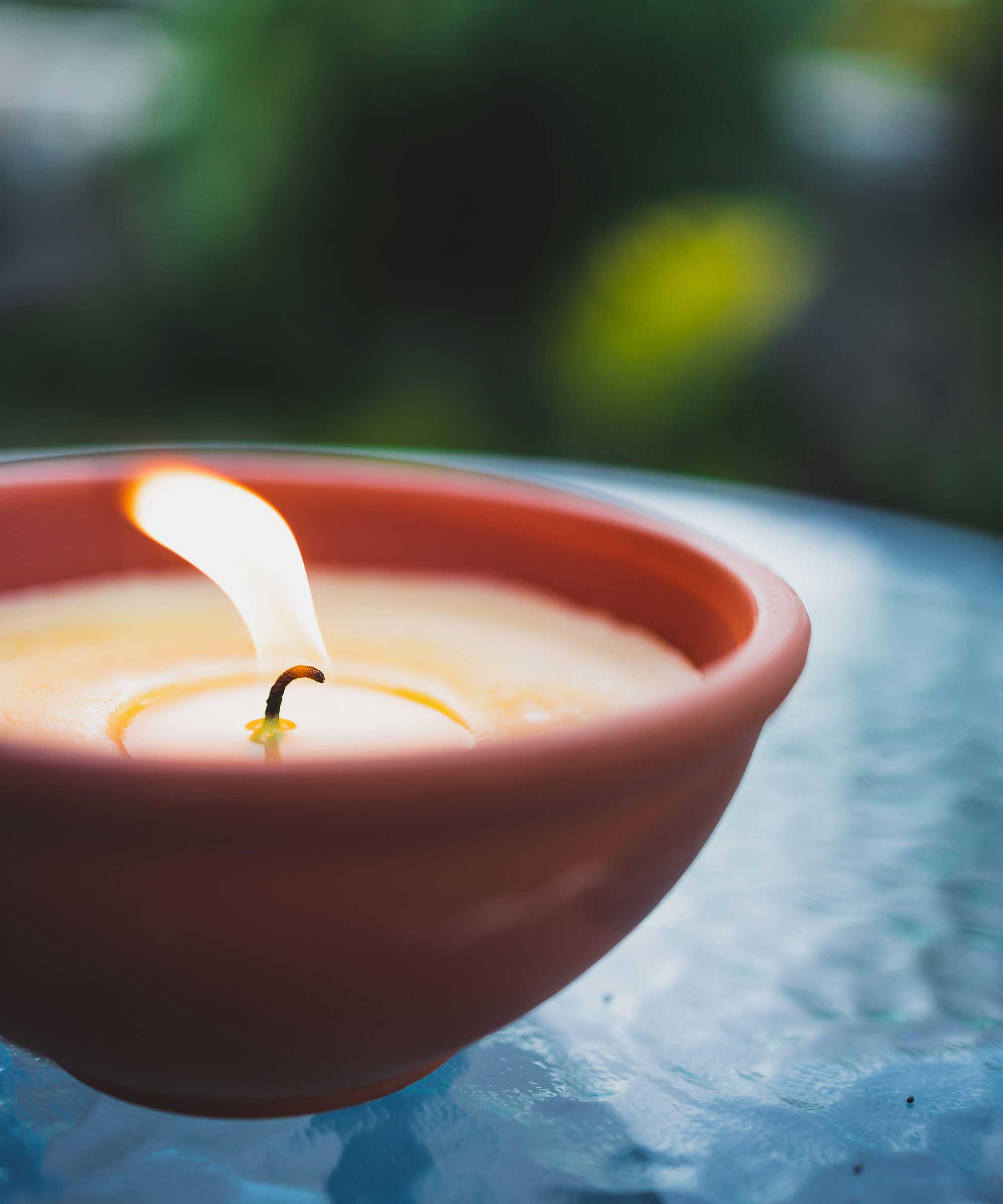
As pest control expert Carpenter explains, picking strong-smelling citrus scents, like candles or the best fly repellent plants, for pest control, will prevent flying insects from easily locating food, making it less likely that they will come and bother you. If you're not a fan of citrus, peppermint and lavender can also have similar effects.
Using scent is also effective to keep flies away from your body and to get rid of mosquitoes, continues Carpenter. ‘Pesky insects such as mosquitoes, flies, and gnats locate humans by detecting CO2 from exhalation and sweat. By masking the scent of human exhalation and sweat with stronger scents, we can keep insects at bay. ‘

These candles are made of premium natural ingredients, with a blend of 95% soy wax and 5% plant aromas. They have a burn time of 75-80 hours, with three wicks to ensure an even burn and effective fragrance diffusion.
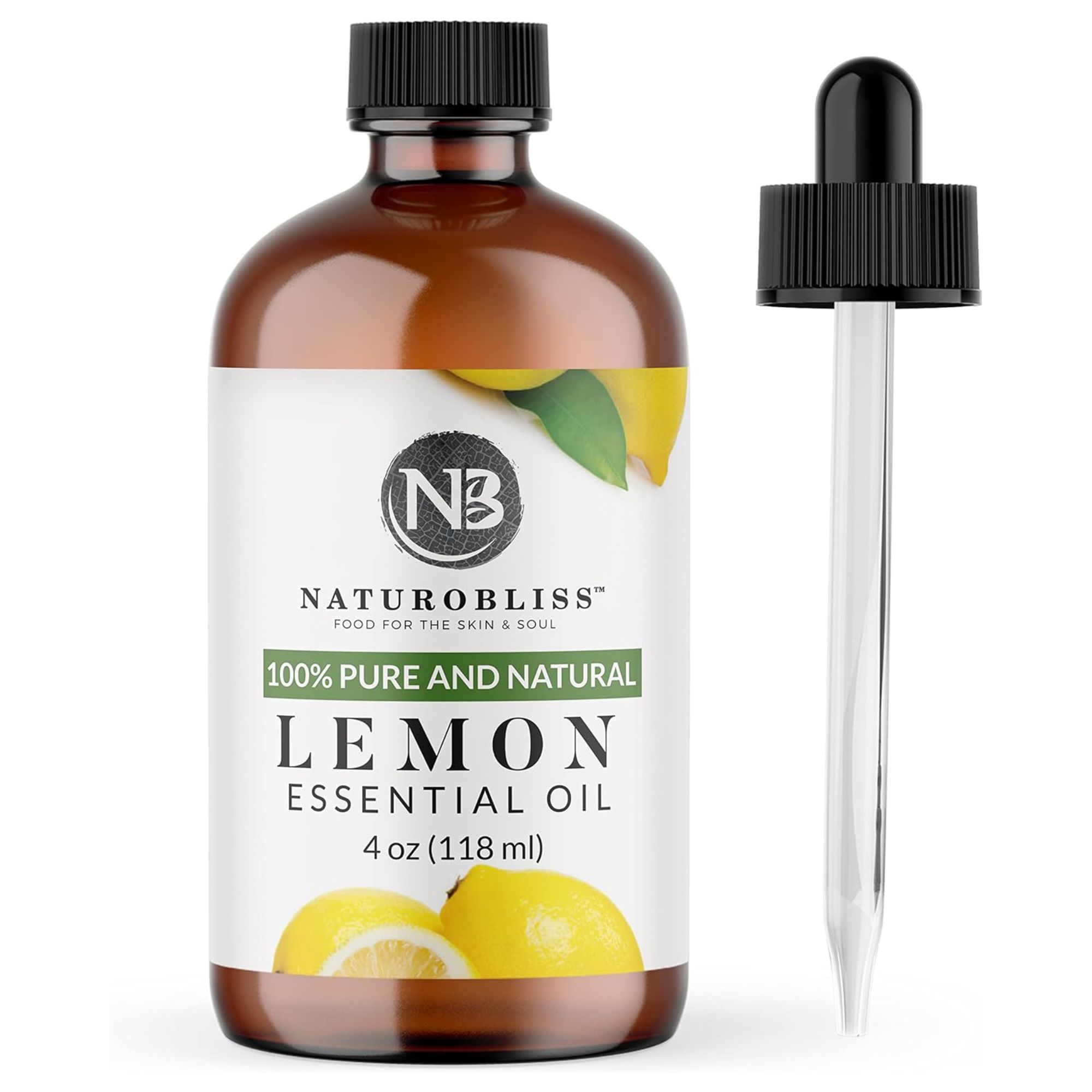
100% pure and natural, this essential oil is a premium therapeutic grade and quality. The amber glass bottle keeps out UV rays, to keep the oil from going bad, with no additives or fillers.
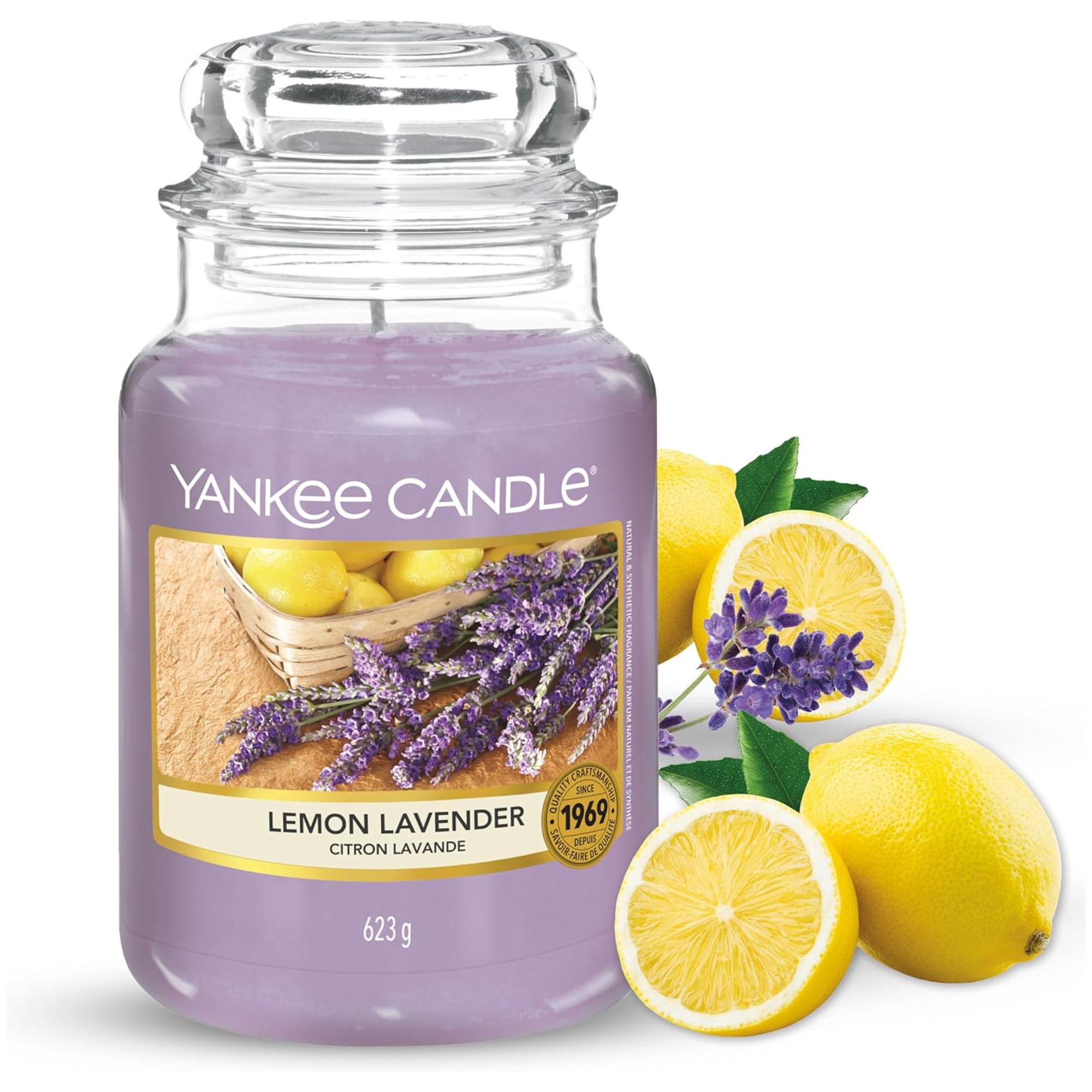
This citrussy, sweet candle has a burning time of 110 to 150 hours, with premium paraffin grade wax, for a clear, consistent, even burn. Housed in a 100% recycled glass container, it's also an eco-friendly choice to repel bugs.
2. Use a fly spray
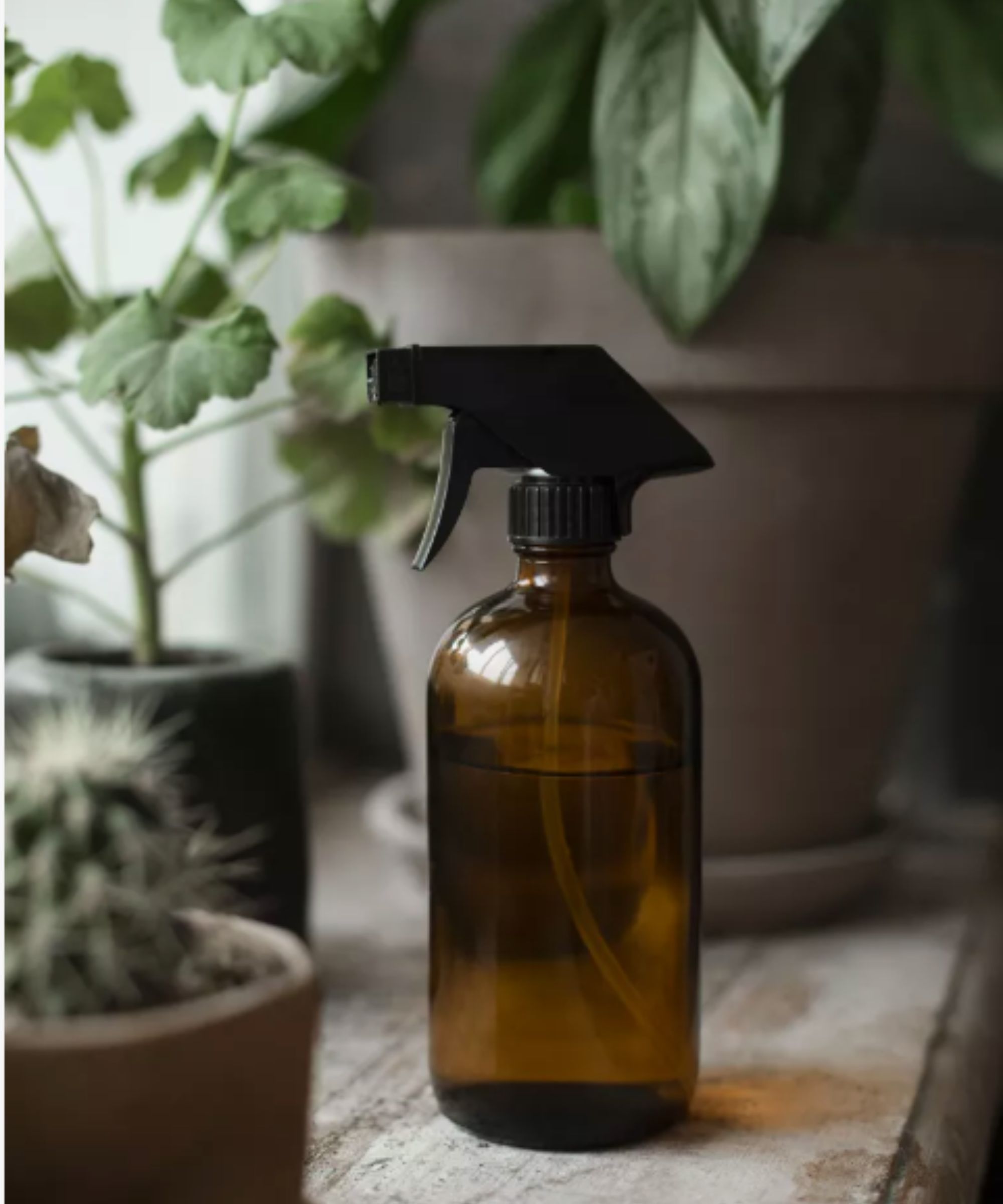
A natural homemade bug spray, such as a garlic, vinegar or tomato leaf spray can be more effective when dealing with a lot of flies in one area, recommends pest control expert Rocky Beninato. He argues that this is the best method with more concrete proven results – especially for inside a house.
If you prefer not to make your own, we recommend the bestselling Repel Plant-Based Lemon Eucalyptus Insect Repellent available at Walmart. It's deet-free, and made with oil of lemon eucalyptus, to effectively repel insects for up to six hours, without harsh chemicals.
3. Use air to your advantage
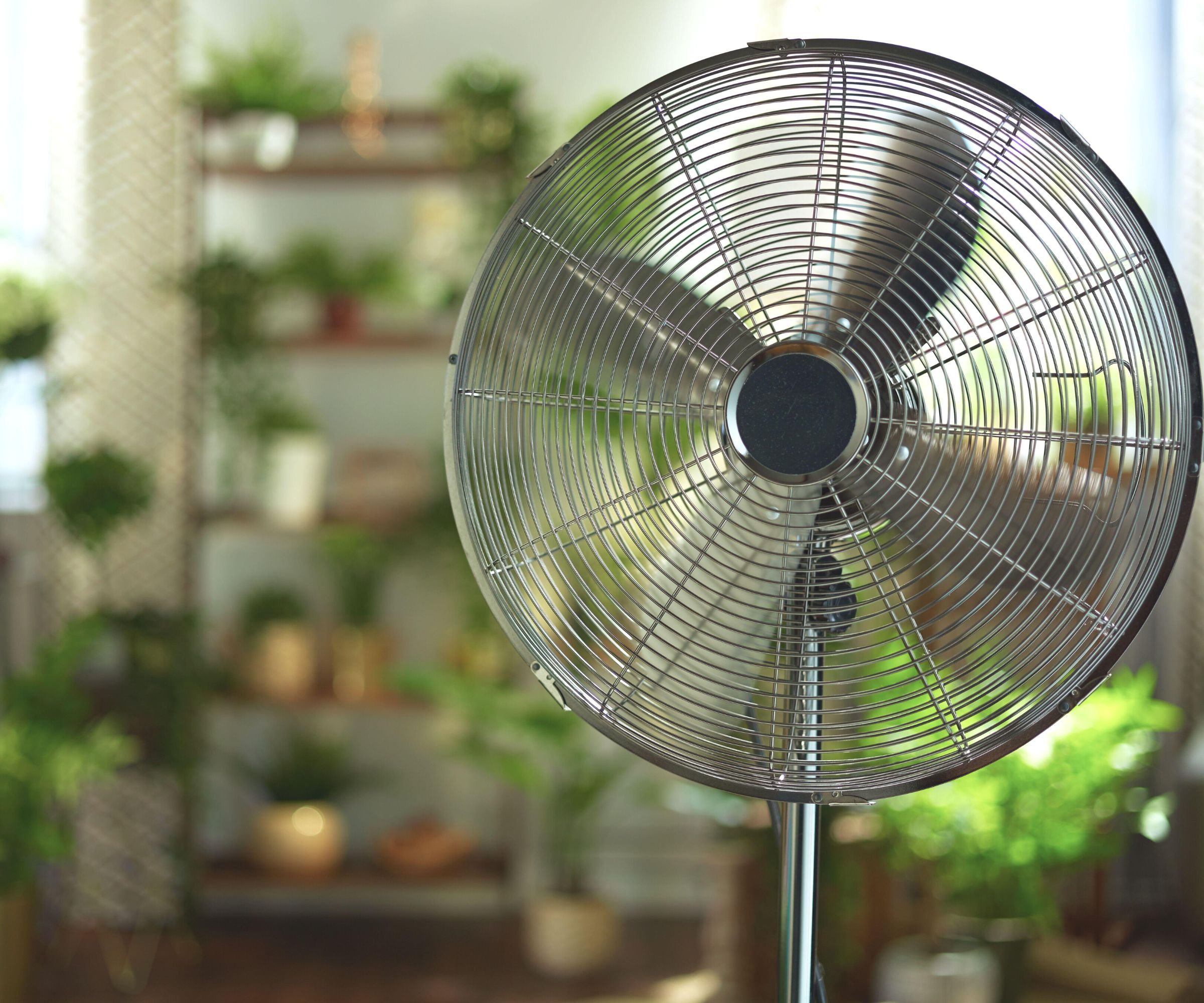
As pest expert Nicole Carpenter explains, flies require good wind conditions in order to fly without being tired out, so, if you have the resources, using your best fan can help stop flies from invading your space.
She says, ‘Since windy environments are what many insects, including mosquitoes and flies, try to avoid, using a fan to create airflow can help you keep insects at bay.’ You can either direct airflow towards an open window to keep flies out (and push hot hair out at the same time) or use a fan to keep cool when sitting outside, pushing bugs away from you.
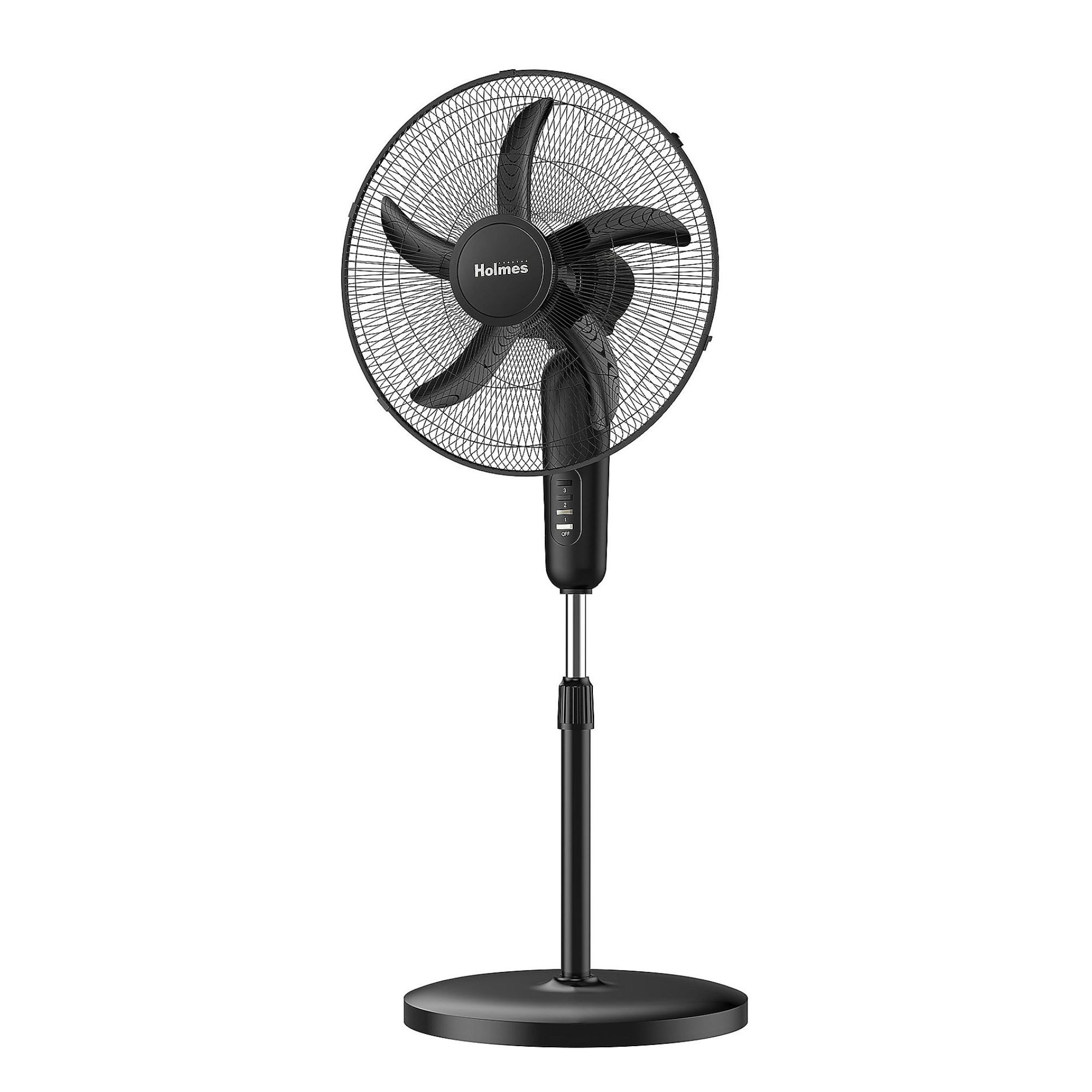
This budget-friendly option has three speed settings, to customize your airflow. It has the ability to cover a large area, with an adjustable tilt for targeted cooling.
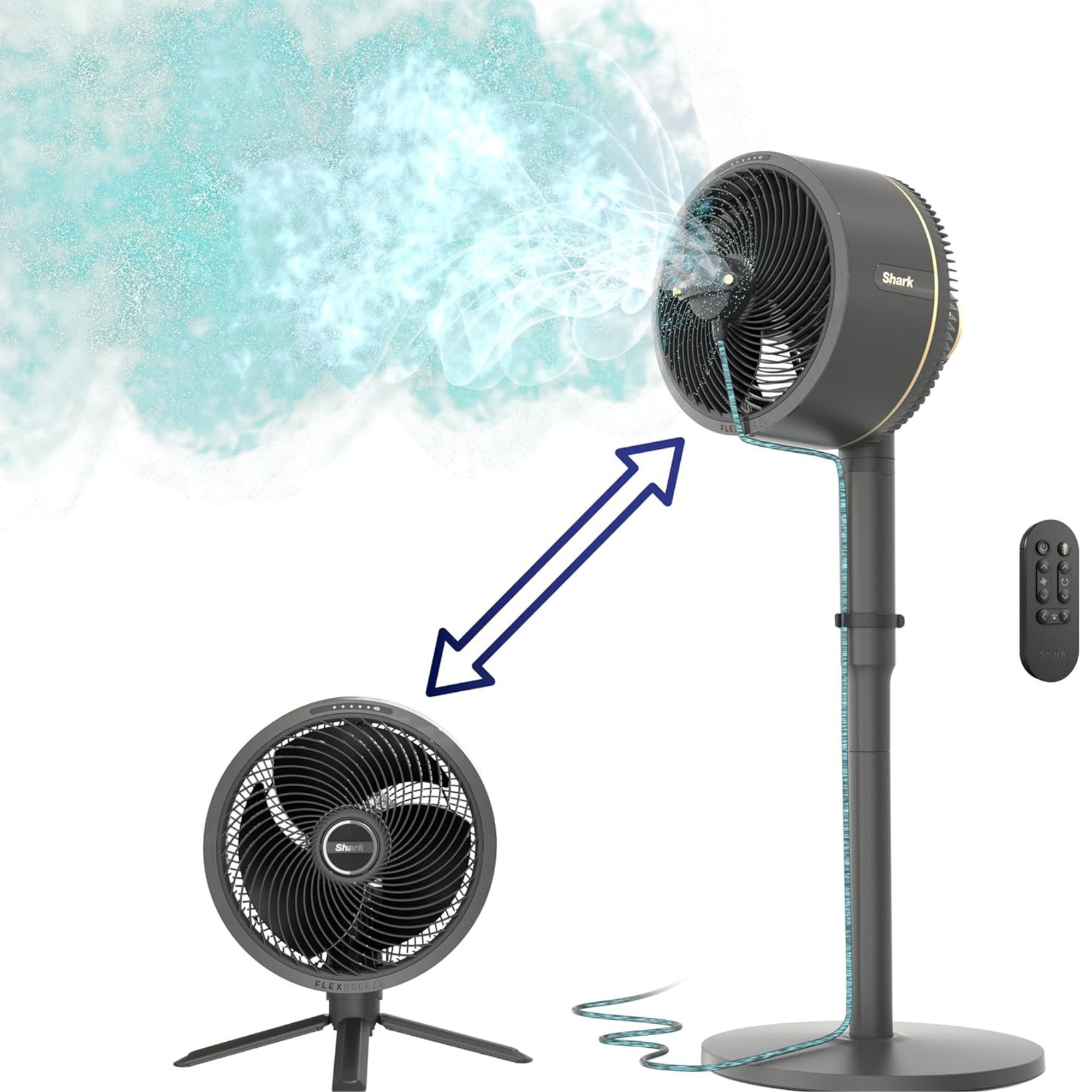
Named 'the best fan you can buy' by our expert testers here at H&G, this fan is suitable for indoor and outdoor use, with up to 24 hours of cordless runtime and a misting attachment for instant cooling.
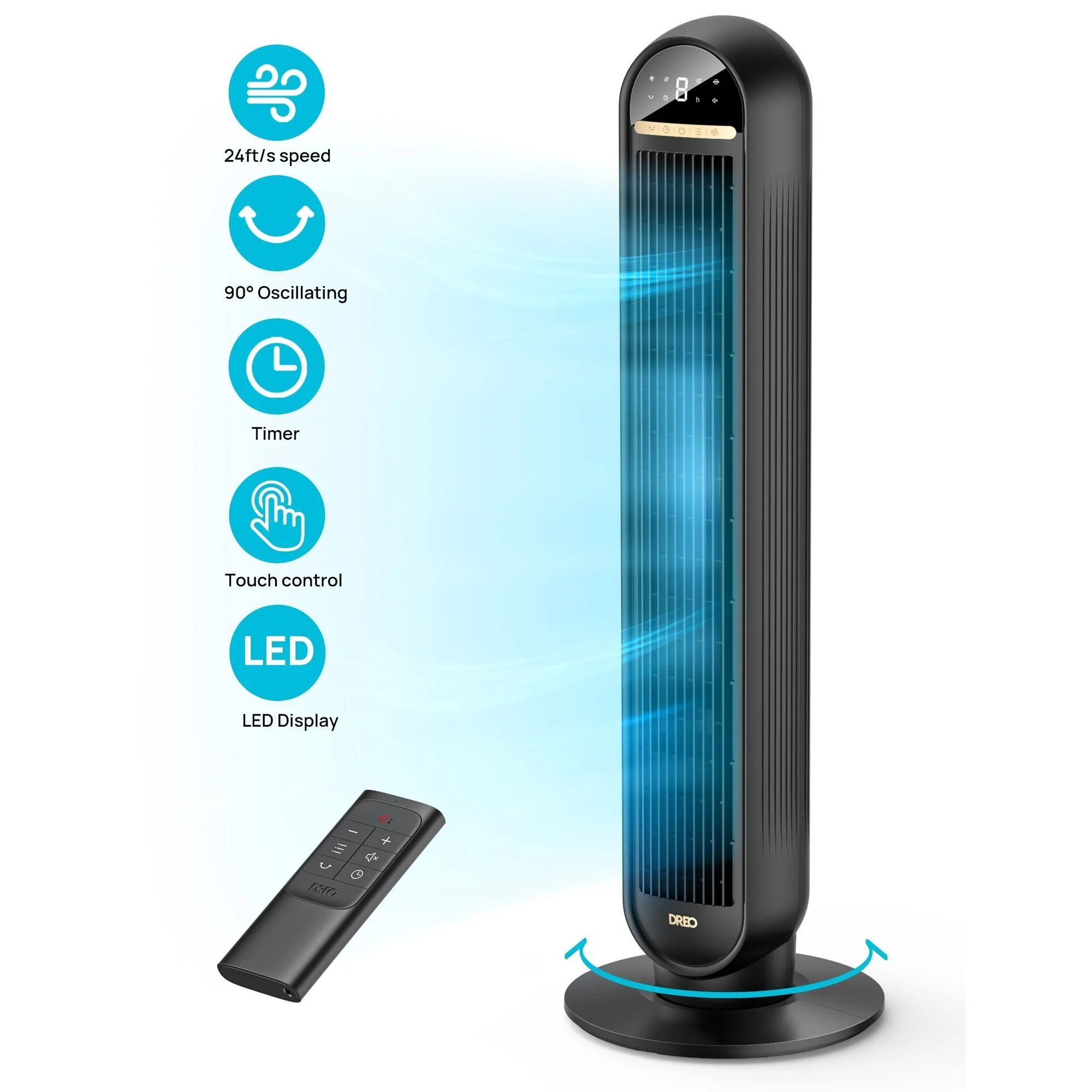
This 90° oscillating cooling tower fan has high-speed, spatial cooling. It's quiet, with four modes including one for sleep, and features an auto shut-off function.
FAQs
What is the best homemade fly repellent?
When making your own home remedies to get rid of flies, combine a mixture of a few drops of dish soap, one cup of water, and a teaspoon each of baking soda, available at Amazon and vinegar in a spray bottle. Shake this up and spray around areas infested with flies. The strong smell will deter them, while the dish soap will make it difficult for them to land or walk around on coated surfaces. We recommend using Dawn Ultra Dish Soap Dishwashing Liquid, available at Walmart.
What kills flies on contact?
When trying to kill flies naturally, pest experts recommend using a high percentage of isopropyl alcohol or rubbing alcohol, such as the Equate 70% Isopropyl Alcohol Liquid available at Walmart, in a spray bottle. Spray the flies directly, wait for a few minutes for it to take effect, and then clean away with a damp paper towel.
When trying any natural remedy, make sure you're aware of mistakes to avoid when getting flies out of the house.
Sign up to the Homes & Gardens newsletter
Design expertise in your inbox – from inspiring decorating ideas and beautiful celebrity homes to practical gardening advice and shopping round-ups.

Chiana has been at Homes & Gardens for two years and is our resident 'queen' of non-toxic living. She spends most of her time producing content for the Solved section of the website, helping readers get the most out of their homes through clever decluttering, cleaning, and tidying tips. She was named one of Fixr's top home improvement journalists in 2024.
-
 How a British designer brought together the different tastes of a couple wanting to create the dream future-proofed home in the idyllic Italian countryside
How a British designer brought together the different tastes of a couple wanting to create the dream future-proofed home in the idyllic Italian countryside‘They wanted a house that would feel immediately like home the minute they arrived, and somewhere relaxing to spend time together as a family and entertain friends.’
By Fiona McCarthy
-
 What is your birth month herb? Discover the symbolic meaning behind yours
What is your birth month herb? Discover the symbolic meaning behind yoursHerbs offer symbolic wisdom, and play to the natural rhythms of the season
By Lola Houlton
-
 I'm a board-certified entomologist and this is the one rodent infestation control mistake I urge you to avoid at all costs – you'll regret it deeply
I'm a board-certified entomologist and this is the one rodent infestation control mistake I urge you to avoid at all costs – you'll regret it deeplyDon't put your health or home at risk
By Daniel Baldwin
-
 5 non-toxic mothball swaps that work – ditch chemicals and that horrible odor with these simple but effective alternatives
5 non-toxic mothball swaps that work – ditch chemicals and that horrible odor with these simple but effective alternativesThey'll protect your clothing and closets from moths without harsh chemicals
By Chiana Dickson
-
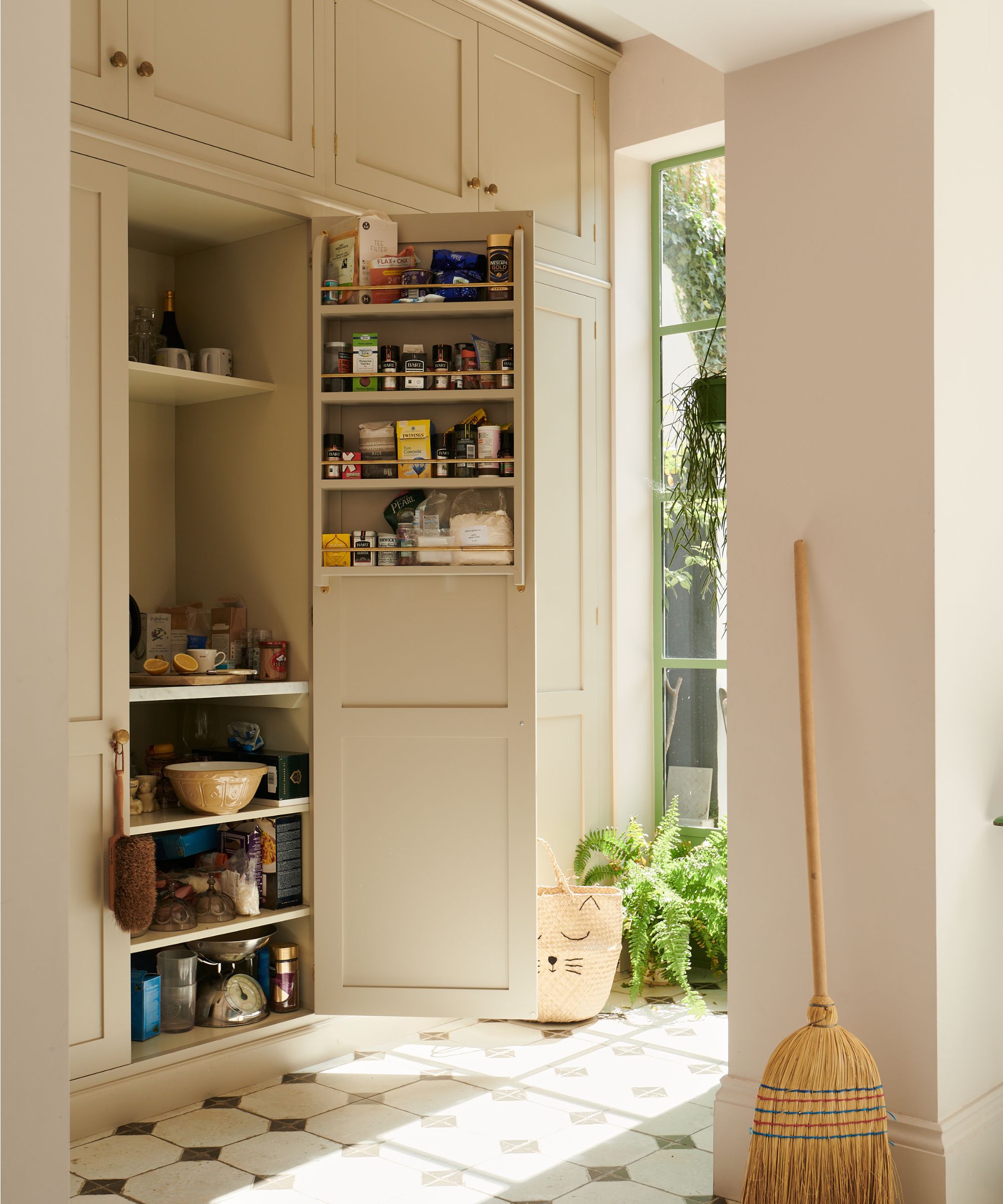 5 non-toxic pest control essentials proven to prevent pests humanely – and why avoiding harsh chemicals is a must to keep your family healthy
5 non-toxic pest control essentials proven to prevent pests humanely – and why avoiding harsh chemicals is a must to keep your family healthyNatural pest repellents are more affordable, too
By Chiana Dickson
-
 6 ways to prevent mold and damp in bedrooms – expert solutions to maintain a safe sleep environment
6 ways to prevent mold and damp in bedrooms – expert solutions to maintain a safe sleep environmentDon't sleep on these six tips, experts urge
By Seraphina Di Mizzurati
-
 6 hidden places pests love to harbor their young – pest control experts reveal how to stop colony growth in your home
6 hidden places pests love to harbor their young – pest control experts reveal how to stop colony growth in your homeYou can stop pests breeding in your home
By Andy van Terheyden
-
 How to keep stink bugs out of the house – according to entomologists
How to keep stink bugs out of the house – according to entomologistsSeal gaps, reduce plants, and use deterrents, pest experts recommend
By Ottilie Blackhall
-
 How to get rid of pill bugs inside your house and banish them for good
How to get rid of pill bugs inside your house and banish them for goodThough harmless, you won't want a pill bug infestation inside, entomologists warn
By Ottilie Blackhall
-
 How to get rid of mice in the attic – banish these pesky invaders for good with these top tips from pest control pros
How to get rid of mice in the attic – banish these pesky invaders for good with these top tips from pest control prosFrom what draws them in to how to get them out – experts reveal everything you need to know about dealing with mice in the attic
By Andy van Terheyden